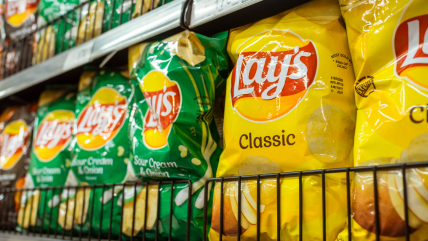
PepsiCo is set to invest over €200m ($217m) in its crisps manufacturing site in Belgium, a move that will create around 150 new jobs.
The site in Veurne in north-west Belgium produces snacks and crisps including Lay’s, Doritos and Cheetos. PepsiCo plans to increase its output by 35%, reaching 115,000 tonnes per year. It makes around two million bags each day, according to a statement.

Discover B2B Marketing That Performs
Combine business intelligence and editorial excellence to reach engaged professionals across 36 leading media platforms.
The number of employees will increase to around 800 at “one of PepsiCo’s largest chip and snack production sites in Europe”, PepsiCo said. It will also build a new warehouse with the injection.
Miet Delmotte, general manager of PepsiCo’s Belgium and Luxembourg business, said: “We are investing significantly in a strong future for our Veurne plant, one of PepsiCo’s largest chip factories in Europe. Due to its strategic location in Belgium, between France, the UK and the Netherlands, we are resolutely choosing our Veurne factory for these significant investments.”
She added: “Sustainability clearly takes centre-stage in our future plans. A large portion of the investments will be dedicated to reducing our dependence on fossil fuels and optimising water usage.”
The Veurne plant produces for 14 countries, mainly for Belgium, France and the Netherlands.

US Tariffs are shifting - will you react or anticipate?
Don’t let policy changes catch you off guard. Stay proactive with real-time data and expert analysis.
By GlobalDataIn a statement, Belgium Prime Minister Alexander De Croo added: “PepsiCo’s commitment to investing heavily in jobs, expansion, and sustainability at its snack plant in Veurne is exemplary. We need a strong Belgian industry not only to navigate the energy transition together but also to maintain jobs and prosperity in Belgium. I am very grateful that PepsiCo is taking a leading role in Belgium in this regard.”
PepsiCo’s group emission targets are to cut “absolute greenhouse gas emissions across our value chain” by more than 40% by 2030, which includes a 75% reduction in emissions “from our direct operations”; and to “achieve net-zero emissions by 2040”. Those targets are based on a 2015 baseline.
Last month, PepsiCo was listed alongside businesses including Nestlé and Danone as the top companies responsible for plastic pollution globally.





